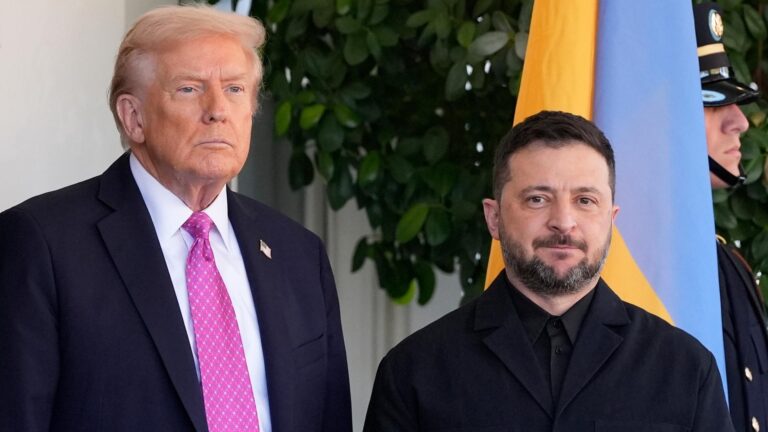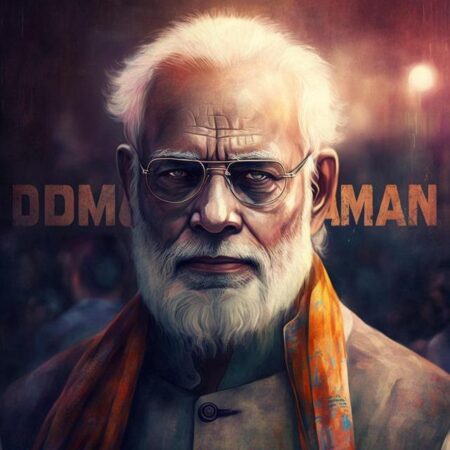Former U.S. President Donald Trump has asserted that Indian Prime Minister Narendra Modi assured him India would cease purchases of Russian oil, according to recent statements reported by Anadolu Ajansı. This development highlights ongoing international efforts to curtail Russia’s energy revenues amid global sanctions and geopolitical tensions. The claim adds a new dimension to the complex relationship between India, Russia, and Western nations as the world monitors the impact of energy policies on the geopolitical landscape.
Trump Claims Modi Assured End to Russian Oil Imports Amid Geopolitical Pressure
Former U.S. President Donald Trump has publicly stated that Indian Prime Minister Narendra Modi assured him India would cease imports of Russian oil in response to mounting geopolitical tensions. This claim, reported by Anadolu Ajansı, highlights ongoing diplomatic efforts to align global energy policies with Western sanctions imposed on Russia following recent conflicts. Trump emphasized that the commitment from India marks a significant shift in the country’s energy procurement strategy, which has been heavily reliant on Russian crude amid fluctuating market dynamics.
The announcement has sparked varied reactions among geopolitical analysts and energy experts. Some view it as a pivotal moment signifying India’s possible pivot towards a more Western-aligned stance, while others caution that concrete measures and timelines remain uncertain. Below is a summary of key points discussed regarding India’s oil imports and international relations:
- India’s current oil import portfolio: Approximately 20% sourced from Russia
- Potential impact on global oil markets: Price fluctuations anticipated if India reduces Russian oil intake
- International pressure: Western countries urging India to adhere to sanctions; India balancing energy security with diplomatic ties
- Modi’s diplomatic challenges: Managing relations with both Russia and Western allies without jeopardizing national interests
| Aspect | Current Status | Potential Change |
|---|---|---|
| Russian Oil Imports | ~20% of total oil imports | Possible cessation or significant reduction |
| Energy Security | Moderately diversified | Increased diversification through alternative sources |
| Geopolitical Relations | Balanced between Russia and West | Potential tilt towards Western alignment |
Implications for India Russia Relations and Global Energy Markets
The announcement that India’s Prime Minister Narendra Modi has allegedly promised to halt Russian oil purchases marks a significant turning point in India-Russia diplomatic ties. Historically, energy trade has been a cornerstone of their strategic partnership, with India relying heavily on discounted Russian oil supplies amid global sanctions. Should this commitment materialize, it risks recalibrating decades of bilateral cooperation, possibly introducing tensions that extend beyond energy into defense and geopolitical realms.
This development also sends ripples through global energy markets. India’s potential withdrawal from Russian crude not only tightens demand for alternative oil sources but also intensifies competition among producers. The broader implication could be:
- Increased oil prices due to shifting supply chains
- Greater reliance on Middle Eastern and American oil exports
- Acceleration of energy diversification and renewables investments in India
| Factor | Potential Impact |
|---|---|
| India’s Oil Imports from Russia | Decline by 30-40% in next fiscal year |
| Global Oil Price Volatility | Increased price fluctuations amid realignments |
| Energy Security Concerns | India accelerates strategic reserves buildup |
Experts Recommend Increased Diplomatic Engagement to Navigate Sanctions Impact
Amid intensifying global sanctions targeting Russia’s energy sector, analysts emphasize that robust diplomatic channels are vital for easing economic pressures and maintaining geopolitical stability. Officials from multiple countries, including India and the United States, have engaged in discreet dialogues aimed at aligning energy trade policies without disrupting existing supply networks. These diplomatic efforts seek to balance sanction enforcement with the intricate realities of international energy dependence.
Key areas highlighted by experts include:
- Establishing transparent communication frameworks to address sanction compliance concerns
- Facilitating multilateral discussions to harmonize policy implementations
- Exploring alternative energy partnerships to mitigate market disruptions
- Enhancing monitoring mechanisms to prevent sanction circumvention
| Country | Diplomatic Initiative | Sanction Focus |
|---|---|---|
| India | Energy dialogue with US | Oil imports from Russia |
| United States | Multilateral sanction coordination | Financial transactions |
| EU | Monitoring enforcement | Gas supplies |
In Conclusion
As the global geopolitical landscape continues to evolve amidst the Russia-Ukraine conflict, developments such as Prime Minister Modi’s alleged commitment to halt Russian oil purchases-as highlighted by former President Trump-underscore the complex interplay between economic interests and diplomatic pressures. Both India and international stakeholders will be closely watched to see how these pledges translate into policy actions, shaping the future of energy markets and international relations.




